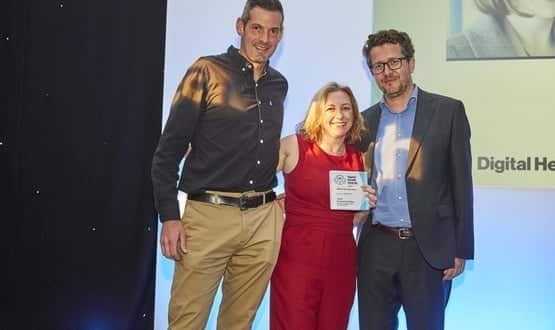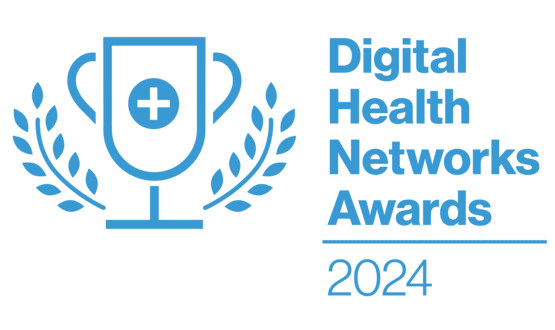Digital Health Award winner profile: Natasha Phillips, CNIO of the Year
- 19 September 2019

In July 2019, the best and brightest in the healthcare IT community were celebrated at the second Digital Health Awards. Over the next few weeks Digital Health news will be publishing a series of profiles of the winners – first up is the CNIO of the Year, Natasha Phillips. She spoke to Owen Hughes about the work – and the people – who helped bag her the award.
The voice of the CNIO has become crucial to national conversations around how the NHS can digitise while keeping the interests and safety of patients front and centre.
Nurse leaders often face situations in which national directives compete with the expectation to do the best for patients. Making decisions that accommodate both, therefore, is no easy task.
As an NHS nurse of 26 years, Natasha Phillips, chief nursing information officer (CNIO) at University College London Hospitals NHS Foundation Trust (UCLH), has ample experience of this delicate balancing act.
To Natasha, the CNIO role means marrying up organisational objectives with individual expectations, while still approaching the table with an open mind.
“The leadership process is naturally conflictual and requires courage, compassion and resilience,” she tells Digital Health News.
“IT projects are never just IT projects – they are people projects, so I bring this theory to work every day.”
Natasha began her NHS career as a nursing assistant at the North London Hospice, where she gained invaluable experience working as part of a multidisciplinary team delivering care to patients.
She then went on to train at the North Middlesex Hospital, where she recalls often feeling frustrated with organisational constraints that limited the care she could deliver.
“I would see opportunities to improve everywhere,” she says.
“The experience of providing exemplary care in an outstanding organisation, followed by my training experience, was a motivational force in driving me forward in my career.
From then on, Natasha made it her mission to pursue roles in which she could influence change.
“I always had an improvement project on the go wherever I worked,” she says.
“I guess ultimately that led me to this role. Along the way, I have been fortunate to work with some great people and have led some very large transformational programmes that have had informatics or technology at their heart.”
Of Epic proportions
Phillip’s astute and adaptive leadership style has earned her recognition amongst her peers, as well as a top accolade – in July, Natasha snagged the (highly coveted) CNIO of the Year Award at the 2019 Digital Health Summer Schools.
She drew commendation for her work on UCLH’s electronic patient record (EPR) programme, which saw UCLH become the second NHS trust to go live with a records system from US supplier Epic.
“It’s a great honour to be nominated,” she says.
“I’ve asked a lot of my nursing colleagues over the past two years, yet despite the additional work, they felt the change was worth it and thought enough of me to nominate me.
“I see this as ‘our’ award really, as we did this big shift in nursing at UCLH together. It’s an additional honour to be voted for by my peers – it quietens any self-doubts that I’ve had about my leadership in driving adoption of technology and informatics to advance nursing practice.”
UCLH deployed Epic’s EPR in April 2017, following a deal struck between the organisations nine months previous.
For Natasha, the project represented the largest piece of work she had ever been involved with, and required overseeing a massive shake-up of nursing practice that saw tradition thrown out the door in the space of 24 hours.
“Overnight, they went from writing notes to doing all of their work with integrated digital technologies; observations on handheld devices, bar-coded medicines administration and blood transfusion, referrals, placing orders and planning care all in an electronic record, and still with the patient at the centre,” the CNIO recalls.
“The leadership shown by our matrons and ward leaders, the support provided by our nurse educators and the focus on providing the right tools by our nurse informaticists meant we had a culture of positivity and optimism, which brought us the biggest change our organisation has ever undertaken with relative ease.”
One particular element Natasha reflects on with fondness is the work her team undertook to standardise nursing assessments and plans of care, which involved embedding an international and standardised terminology within the EPR system.
“This supports decision-making at the bedside, prompting holistic nursing needs assessments and plans of care for all of our patients,” she explains.
“As well as ensuring the care we deliver today is based on best evidence, the use of structured data will enable us to generate evidence about the outcomes of nursing care and potentially design algorithms that can predict risks of avoidable harms, like pressure ulcers.
“It supports our ward accreditation process at UCLH, enabling us to recognise and celebrate success, drive improvement and offer additional support where needed.”
The future’s bright
As well as reaping short-term benefits, the efforts undertaken by Natasha and her team poises the trust for future rewards.
“We are now at the exciting point where we see what our next changes are, what we want to optimise and where we need to reinforce learning,” she says.
“We have a wealth of data at our fingertips and a need for more nurses, with the time and skill to use this to drive patient safety, quality improvement and patient experience.
“I am most proud of this change because it forms the basis of a digital transformation of our nursing practice and our nurses have embraced that potential fully. The future is exciting.”




